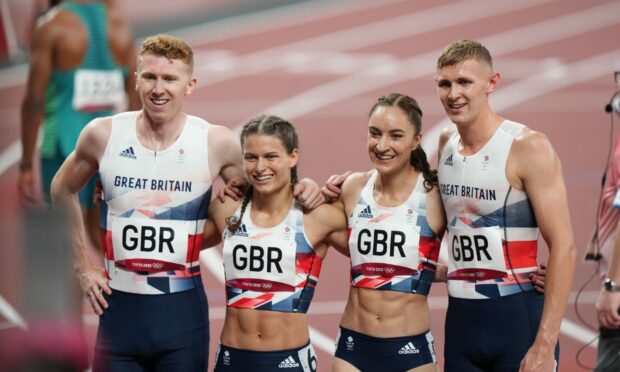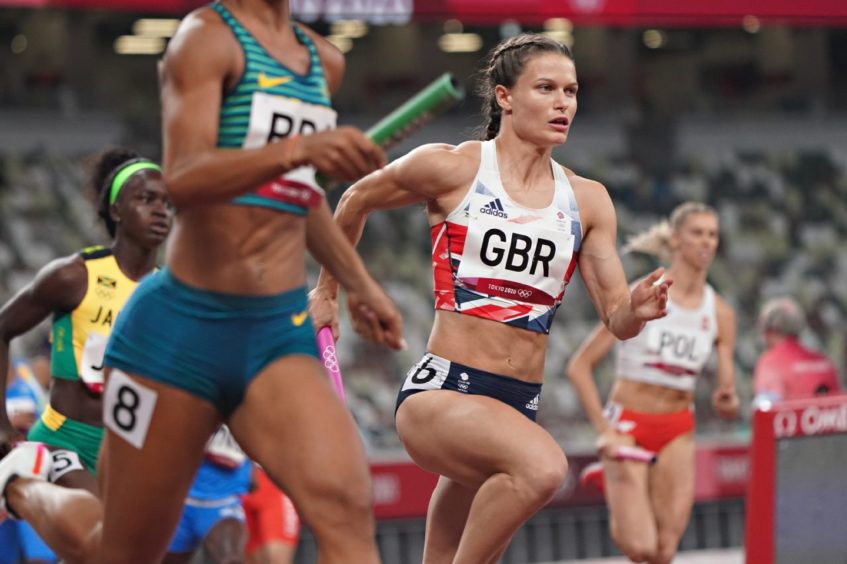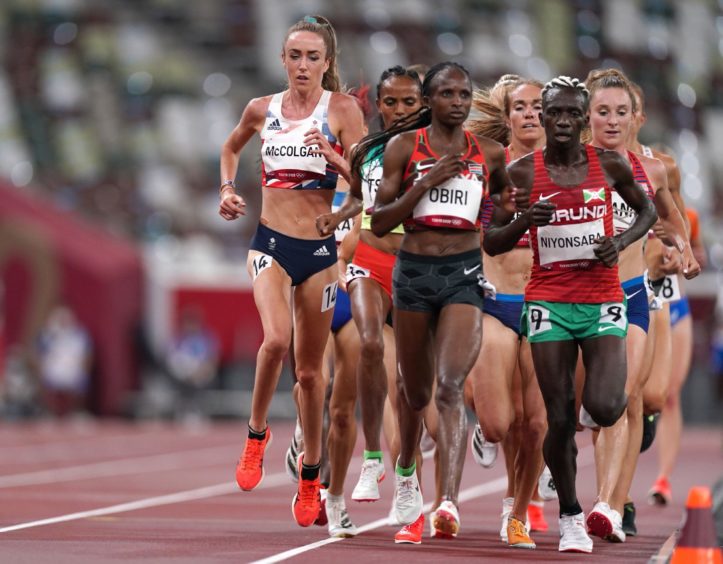Aberdeen’s Zoey Clark was thrilled to help Great Britain reach the final of the 4x400m mixed relay.
Clark became the first Aberdeen woman to take part in an Olympic track event for 69 years when competing in the mixed relay, an event making its debut at the Games.
Quita Shivas was the last female competitor from the Granite City to compete in the Olympics when she ran in the 100m at the 1952 Helsinki Games
Clark, along with Cameron Chalmers, Emily Diamond and Lee Thompson, finished fourth in their heat and qualify as a fastest loser.
“It’s just really exciting – we’re used to men’s and women’s relay but this just felt fun,” she said.
“You’re racing with different people, you’re racing against different teams, so I think it definitely brings some excitement to it.”
Meanwhile, a stunned Eilish McColgan was left searching for answers after a dreadful run ended her Olympic 5000m bid early.
The Dundee runner had hoped to finish in the top five and book a place in the final but she lost touch with the leaders and staggered home in 15:09.68s, a massive 41 seconds off the personal best she set last month.
The 30-year-old didn’t even finish as the top Brit, finishing second to Amy-Eloise Markovc, and was left frustrated by her performance and complained her rhythm was constantly disrupted by her opponents.
“It’s nuts, it is so far off my best, if someone had told me I’d do that time, I would have thought I’d lose a leg doing it – it’s so far off me,” she said.
“On the first lap I was shouting at them saying stop clipping me, stop clipping me. Every single lap.
“It plays on your mind because you realise you shouldn’t be speaking during the race, but every lap I felt like ‘I’m going to go down, I’m going to go down’ and then at 6000m and I got very badly, badly clipped.
“So, I just felt like then it sapped me. I felt good before but after that I was running so slow.
“I don’t know who was behind us but others getting clipped. The two of us were constantly speaking and I was aware I shouldn’t be constantly shouting and chatting the middle of the race.
“I know it happens because I am tall but I’m just going to go to the front in any race now. I’m not doing it, it’s just too difficult for me to be there.
“Instead, I was constantly aware, I knew I was going to go down, I could just sense that someone was going to go down. That made me anxious, and I had no energy.”
McColgan’s Olympics are not yet over as she will return for the 10,000m next weekend.
Discover more about how playing The National Lottery supports Team GB’s athletes by visiting www.national-lottery.co.uk/tokyo2020 and get involved by using the hashtags: #TNLAthletes #MakeAmazingHappen


